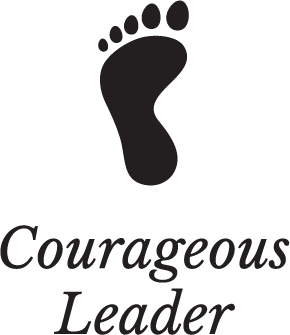Organizational culture is the heart and soul of any company. It defines the work environment, influences employee behavior, and ultimately drives success. This article explores organizational culture, why it matters, and how it can be developed effectively.
What is Organizational Culture?
Organizational culture is the shared values, beliefs, and practices that shape how employees interact and work together. The invisible force guides behavior and sets the tone for how things are done. A strong culture aligns the company’s mission and values with the day-to-day actions of its employees.
Culture encompasses everything from communication styles and work ethics to decision-making processes and leadership approaches. It’s reflected in the company’s policies, procedures, and the unwritten rules everyone follows.
Why is Organizational Culture Important?
Organizational culture plays a crucial role in the success and sustainability of a company. Here are some reasons why it is essential:
- Employee Engagement and Retention: A positive culture fosters employee satisfaction and loyalty. When employees feel valued and aligned with the company’s values, they are likelier to stay and perform at their best.
- Productivity and Efficiency: A strong culture encourages collaboration and innovation. It creates an environment where employees feel empowered to take initiative and contribute to the company’s goals.
- Attracting Talent: Companies with a strong culture attract top talent. Potential employees look for workplaces where they can thrive and feel a sense of belonging.
- Customer Satisfaction: A positive culture translates to better customer service. Employees who are happy and engaged are likelier to go the extra mile for customers.
- Change Management: A resilient culture helps companies navigate change effectively. It provides a stable foundation during transitions and uncertainty.
Developing Organizational Culture
Developing a solid organizational culture is a deliberate and ongoing process. It requires commitment from leadership and active participation from all employees. Here are essential steps to build and nurture a positive culture:
Define Core Values and Mission
Start by clearly defining the company’s core values and mission. These should reflect what the company stands for and aims to achieve. Communicate these values consistently and integrate them into every aspect of the business.
Lead by Example
Leaders play a crucial role in shaping and maintaining culture. They must embody the company’s values and lead by example. When leaders demonstrate the desired behaviors and attitudes, employees are more likely to follow suit.
Foster Open Communication
Encourage open and transparent communication at all levels. Create channels for feedback and ensure that employees feel heard and valued. Regularly communicate the company’s goals, achievements, and challenges to keep everyone informed and engaged.
Recognize and Reward
Recognize and reward employees who exemplify the company’s values. This will reinforce positive behavior and motivate others to follow. Celebrate achievements and milestones to build a sense of community and pride.
Invest in Professional Development
Provide opportunities for employees to grow and develop their skills. Invest in training and development programs that align with the company’s goals and values. This enhances employee capabilities and demonstrates the company’s commitment to their growth.
Promote Work-Life Balance
Encourage a healthy work-life balance to prevent burnout and maintain employee well-being. Offer flexible work arrangements and support initiatives that promote mental and physical health. A balanced workforce is more productive and engaged.
Measure and Adjust
Regularly assess the company’s culture and make necessary adjustments. Use surveys, feedback, and performance metrics to gauge the effectiveness of cultural initiatives. Be willing to make changes and adapt to evolving needs and circumstances.
The Role of Leadership in Organizational Culture
Leadership is the cornerstone of a solid organizational culture. Leaders set the tone and direction for the company. They influence how employees perceive and interact with the culture. Here’s how leaders can positively impact organizational culture:
Communicate Vision and Values
Influential leaders communicate a clear vision and set of values. They ensure that everyone understands the company’s purpose and goals. This creates a sense of direction and unity among employees.
Build Trust
Trust is the foundation of a positive culture. Leaders must build trust through transparency, integrity, and consistency. When employees trust their leaders, they are more likely to be engaged and committed.
Empower Employees
Empower employees by giving them autonomy and responsibility. Encourage them to take ownership of their work and contribute ideas. This fosters a sense of accountability and innovation.
Support Collaboration
Promote a collaborative environment where employees feel comfortable working together. Break down silos and encourage cross-functional teamwork. Collaboration leads to better problem-solving and creativity.
Provide Support and Resources
Ensure that employees have the resources and support they need to succeed. This includes providing the right tools, training, and guidance. When employees feel supported, they are more likely to perform well.
The Impact of Organizational Culture on Business Performance
A strong organizational culture has a significant impact on business performance. It influences various aspects of the company, from employee satisfaction to financial results. Here’s how culture affects business performance:
Employee Productivity
A positive culture boosts employee productivity. When employees are happy and motivated, they are more efficient and produce higher-quality work. This directly contributes to the company’s bottom line.
Innovation and Creativity
A culture that encourages innovation and creativity leads to new ideas and solutions. Employees feel free to experiment and take risks, which can result in breakthrough products and services.
Customer Loyalty
Customers are more likely to stay loyal to companies with a positive culture. They appreciate the consistency and quality of service from engaged and satisfied employees.
Financial Performance
Companies with solid cultures often outperform their competitors financially. They have lower turnover rates, higher employee satisfaction, and better customer retention, all of which contribute to better financial results.
Resilience and Adaptability
A resilient culture helps companies adapt to changes and challenges. It provides a stable foundation and a sense of continuity, even during turbulent times. This resilience is crucial for long-term success.
How Courageous Leadership Shapes Organizational Culture
At Courageous Leader by Kull Leadership AB, we believe leadership is the key to a thriving organizational culture. Our program focuses on developing courageous, authentic, and visionary leaders. Here’s how our program relates to the main topic of organizational culture:
Developing Courageous Leaders
Our program equips leaders with the skills and mindset to lead with courage. We help them embrace vulnerability, take bold actions, and inspire their teams. Courageous leaders create a culture of trust, innovation, and collaboration.
Fostering Authenticity
Authenticity is at the core of our leadership philosophy. We encourage leaders to be true to themselves and lead with integrity. Authentic leaders build strong relationships and foster a positive culture where employees feel valued and respected.
Inspiring Vision
A clear vision is essential for a strong culture. Our program helps leaders articulate and communicate their vision effectively. We teach them how to align their team’s efforts with the company’s goals and create a sense of purpose and direction.
Building Resilience
Resilient leaders create resilient cultures. We provide tools and strategies to help leaders navigate challenges and adapt to change. This resilience is crucial for maintaining a positive culture in adversity.
Conclusion
Organizational culture is the backbone of any successful company. It influences every aspect of the business, from employee engagement to financial performance. Developing a strong culture requires commitment, clear values, and effective leadership.
At Courageous Leader by Kull Leadership AB, we are dedicated to helping leaders build and sustain positive organizational cultures. Our program focuses on developing courageous, authentic, visionary leaders who inspire and drive their teams to success.
If you’re passionate about creating a thriving organizational culture, we invite you to explore our Courageous Leader program. Join us in building a workplace where everyone can thrive. Comment below, share this post or learn more about how we can help you develop courageous leaders in your organization.
Read More:


